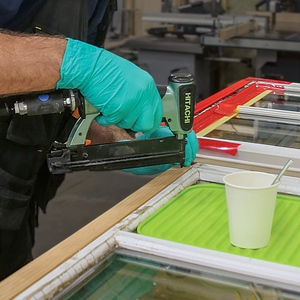We recently moved into a house with natural gas heat. It has a CO detector hooked up to the wiring but it’s mounted just above the plug maybe two feet off the floor. According to what I found in the archives, it ought to be eye-level or higher, so I know I need to move it.
I have no manual so I have no idea how it operates. Over the last two weeks it has gone off with just a single beep four or five times. Any ideas what might be causing the problem or do I just need to get someone in there to look at it and do some testing? The heating unit was supposedly replaced a few years ago.
Thanks,
Jim



















Replies
I can't emphasize this enough: FIND THE INSTRUCTIONS AND READ THEM! (Sorry about the capitals, but this needs shouting.) Different detectors can use the same sound to mean different things.
Just search the web for the brand, and there should be the instruction sheets there.
That said--All detectors that I have seen let off an ear-splitting screech when they are annoyed (having dectected something). Otherwise the beep means it is alive and noticed something. Mine beeps each time the power is removed, and when it is repowered.
Edited 2/16/2007 3:23 pm ET by JohnD1
The beep may be a low battery warning. Units that are on house current will typically also have a battery so they still work when the power is out.
You do not need to move it. Unlike smoke which rises, CO weighs about the same as air, so mixes equally throughout the atmosphere.
The part that's BAD is that blood cells in our body LOVE CO much much better than they LOVE oxygen. Soooo say you've got 10 molecules of air that you are breathing in. 5 are CO & 5 are oxygen. Your body will grab the CO & HOLD ON TO IT. The next breath you take, 5 more CO molecules are grabbed. Everytime you take a breath you are displacing the oxygen in your blood with MORE CO. Even if you move to an area that doesn't have any CO, the blood in your body still has CO.
I believe that's why hospitals put you in a pressurized chamber with pure oxygen. To displace the CO that's already in your blood.
If you experience headaches, fatigue, nausea, dizzy spells, confusion & irritability and MORE IMPORTANTLY, if you notice these symptoms in children or ANIMALS, go outside and call 911. I've never seen a dog with the flu.
If the detector is actually going off & you don't feel sick, DO NOT IGNORE the alarm. It's designed to go off before you feel sick.
I've started working for a company that takes this stuff VERY seriously. Let me know if you need brochures or something.
ONE WEEK Pumpkin-sitting w/the only Houdini dog in America. Day 6.
Well, since everyone in the house is over 55, that goes without saying. ;) But I'll look up the brand name and try to find some documentation online tonight. Since the beeps are so seldom, a dying battery does sound possible.
I do have other even more elderly people in the house, though, so I'm going to try to find one that detects & reports lower than 70 ppm with an LED readout. One brand I've found that does that (COExperts.com) seems to have been destroyed by the winter storms that hit Missouri. They're months behind on orders at best.
1. The beep probably indicates a low backup battery
2. GET a better detector: minimum - one with an LED readout ($40-50) - the one you have just isn't very sensitive
Long term low level exposure to CO can cause serious heart and neurological problems: even though you aren't dead doesn't mean you don't have a CO problem.
Mount it at about eye-level or slightly above in a conspicuous spot in the bedroom of the most medically sensitive person in the house.
If thee are any especially sensitive people in the house, get a low level monitor ($125+) See below*)
Preferably one on each living level: bedrooms first, utility room second ....
Although it is true that CO weighs about the same as most other components of air, (i) when it gets into the air it is in heated gases which rise,and (ii) if there is a significant combustion leak into the house, as the gases cool the CO2 will settle to the floor and, in 'extreme' cases block migration of CO to the lower section
That CO2 effect can have 2 consequences: it can block CO from the detector and, more importantly, reduce oxygen availability to any combustion sources and significantly increase the production of CO - sometimes to lethal levels.
FWIW: This advice is based on real experience - not just a classroom.
I have had several sources of specialized training in CO and CO Safety Analysis and have studied and worked with it in buildings for about 7 years, and I teach CO Safety and Combustion Analysis procedures for home inspectors.
Until I get my email sever fixed, I can be reached at rjw.walker[nospam]@gmail.com
Remove the obvious clause
--------------
Low level monitors
National Comfort Institute: http://tinyurl.com/cl4h7
Aeromedix: (not currently shipping) http://tinyurl.com/39z2bt
With my mouth I will give great thanks to the Lord; I will praise Him in the midst of the throng. For He stands at the right hand of the needy, to save them from those who would condemn them to death.
- Psalms 109:30-31
Edited 2/16/2007 5:17 pm ET by rjw
I know I need a better detector but with one of the low-level ones out of stock until April at best and the other one requiring a certified installer only, I'm wondering if there is a third option out there.
I am not positive because I haven't looked at it closely yet, but I don't think the one we have has a battery backup - according to my wife, it's got a "will not operate during power failure" notice on it.
>>I know I need a better detector but with one of the low-level ones out of stock until April at best and the other one requiring a certified installer only, I'm wondering if there is a third option out there.Well, I don't want to contradict my supplier, NSI/NCI, but if you are certified to use a screwdriver (screws are supplied) and have enough sense to keep it away from ceiling fans etc and read the instructions ....If you get confused, give me a call, I am a NSI "certified installer."
With my mouth I will give great thanks to the Lord; I will praise Him in the midst of the throng. For He stands at the right hand of the needy, to save them from those who would condemn them to death.
- Psalms 109:30-31
My CO detector went off recently (dead bird in a flue pipe).but I started asking around, and somebody told me CO detectors should be replaced every 7 years. I called the tech support people for the unit I had (Kidde -- Nighthawk), and sure enough, that's what they say too.********************************************************
"It is what we learn after we think we know it all, that counts."
John Wooden 1910-
Radon can do it. Here, anyway. Don't know where you are.
Just something else to worry about
Forrest
I think you need to replace the detector. CO detectors are good for only 5 years after they are first energised. When the warning sound occurs, they are already not effective.